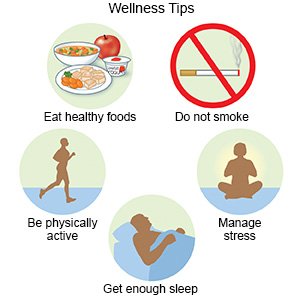Generalized Anxiety Disorder
Medically reviewed by Drugs.com. Last updated on Aug 4, 2025.
What is generalized anxiety disorder (GAD)?
GAD is a condition that causes you to worry or feel nervous about daily activities. You are not able to control your anxiety and feel calm. You may have anxiety about your health, job, money, or relationships. Anxiety can also happen without a cause.
What increases my risk for GAD?
- Family or work stress
- A family history of an anxiety disorder
- A medical condition, such as diabetes or depression
- Use of tobacco products, caffeine, alcohol, or stimulating drugs, such as cocaine
- Age 20 to 30
What other signs and symptoms may occur with GAD?
- Fatigue (being mentally and physically tired) or muscle tightness
- Shaking, restlessness, or irritability
- Problems focusing
- Trouble sleeping
- Feeling jumpy, easily startled, or dizzy
- Nausea, vomiting, diarrhea, or sweating
- Rapid heartbeat or shortness of breath
How is GAD diagnosed?
Tell your healthcare provider when your symptoms began and what triggers them. Tell your provider if anxiety affects your daily activities. Your provider will also ask about your medical history and if you have family members with a similar condition. Tell your provider about your past and present alcohol, nicotine, or drug use.
Related medications
How is GAD treated?
- Cognitive behavioral therapy (CBT) can help you understand what triggers your symptoms. You may learn how to change how you react to events.
- Medicines may be given to help you feel calm and relaxed, and to decrease your symptoms. Medicines are usually given together with therapy or other treatments.
Treatment options
The following list of medications are related to or used in the treatment of this condition.
What can I do to manage GAD?
- Talk to someone about your anxiety. Choose someone you know will be supportive and encouraging.
- Keep a journal of your symptoms. Write down what you were doing before your symptoms started. Also write down what made the anxiety better or worse. Bring this journal with you to your follow-up appointments.
- Do activities you enjoy. Spend time with friends, or do something fun. Choose activities you are familiar with or comfortable doing. This may help prevent anxiety. Try to be active throughout the day. Physical activity can help relieve or prevent anxiety.
- Practice deep breathing. Deep breathing can help you relax when you feel anxious. Focus on taking slow, deep breaths several times a day, or during an anxiety attack. Slowly breathe in through your nose. Pause, then slowly breathe out through your mouth. Try to breathe out longer than you breathed in. Deep breathing combined with activities such as yoga, meditation, or listening to music can help you relax.
- Create a regular sleep routine. Regular sleep can help you feel calmer during the day. Go to sleep and wake up at the same times each day. Do not watch television or use the computer right before bed. Your room should be comfortable, dark, and quiet.
- Eat a variety of healthy foods. Healthy foods include fruits, vegetables, low-fat dairy products, lean meats, fish, whole-grain breads, and cooked beans. Healthy foods can help you feel less anxious and have more energy. Do not have caffeine. Caffeine can make your symptoms worse. Do not have foods or drinks that are meant to increase your energy level.

- Do not use tobacco products, drink alcohol, or use drugs. These can all increase anxiety or make it hard to manage. Ask your provider for information if you currently use any of these and need help to quit. E-cigarettes and smokeless tobacco still contain nicotine. Talk to your healthcare provider before you use these products.
 |
Call your local emergency number (911 in the US) for any of the following:
- You have chest pain, tightness, or heaviness that may spread to your shoulders, arms, jaw, neck, or back.
- You feel like hurting yourself or someone else.
When should I call my doctor?
- Your symptoms do not get better with treatment.
- You have new or worsening symptoms since your last visit.
- You have questions or concerns about your condition or care.
Care Agreement
You have the right to help plan your care. Learn about your health condition and how it may be treated. Discuss treatment options with your healthcare providers to decide what care you want to receive. You always have the right to refuse treatment. The above information is an educational aid only. It is not intended as medical advice for individual conditions or treatments. Talk to your doctor, nurse or pharmacist before following any medical regimen to see if it is safe and effective for you.© Copyright Merative 2025 Information is for End User's use only and may not be sold, redistributed or otherwise used for commercial purposes.
Learn more about Generalized Anxiety Disorder
- Antidepressants: Options, Advantages, and Precautions
- Anxiety Drug & Alcohol Interactions: What to Know?
- Benzodiazepines: Overview and Use
Treatment options
Care guides
- Anxiety
- Anxiety in Adolescents
- Anxiety in Children
- Hyperventilation
- Relaxation and Meditation
- Social Anxiety Disorder
Symptoms and treatments
Medicine.com guides (external)
Further information
Always consult your healthcare provider to ensure the information displayed on this page applies to your personal circumstances.
